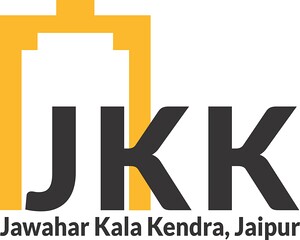An exhibition on contemporary architecture in India
January 21–March 31, 2018
2 Jawahar Lal Nehru Marg, Jhalana Doongri, Rajasthan
Jaipur 302 004
India
rupali.gupte@gmail.com
When is Space? discusses contemporary architecture and space-making practices in India. The historic city of Jaipur established by the astronomer-king Sawai Jai Singh and the Jawahar Kala Kendra, one of the most significant buildings of Charles Correa, provide an apt context for this exhibition.
A large part of contemporary space-making practices appears to be structured around three imperatives: first, computational and mathematical logics aided through a variety of devices including digital media; second, environmental and cultural responsiveness that manifests as new building typologies; and third, concerns regarding city and public that produce urbanistic practices of research and advocacy. These imperatives were also central to the pursuits of Jai Singh and Charles Correa. The obsessions with the astronomical mathematics; the desire to reinvent building types, and the aspiration to create a just and sustainable city are dominant in the ambitions of both individuals. The exhibition has a conceptual ambition of tying together the visions of Sawai Jai Singh, the ideas of Charles Correa and the concerns of contemporary space-making practices. Towards this, three provocations are articulated:
Mathematics of the Universe
The notion of boundary is crucial to thinking about space. However, this idea of boundary limits our imagination of the universe. It is probably in the fractals, multiples and geometry as much as the errors, glitches and slippages that the experience and form of the universe can be conceptualised. What happens when this mathematical logic is mobilised to (re)invent form and space—does it provide a hint to the logic of the universe?
Typologies of Life and Living
Different forms of life-forces—work, leisure, craft, religion, celebration, governance, etc. constantly co-produce each other. Over time patterns develop in them which can be identified as typologies. While typologies consolidate culture, they may stagnate life in set moulds. What happens when built-form typologies are interrogated and transformed—what new forms of living get produced?
Forms of the Collective
Imaginations of collective life manifest themselves as cities. Here, specific urban forms emerge, that complement as well as reproduce the collective. As the collective is a complex entity that is composed of a variety of practices and desires – the urban forms they inhabit are usually contested. Can there be an urban form that can afford the multiplicity of the collective—what are the enabling infrastructures and new logics for exploration of life?
When is Space? includes the works of architects, artists, designers, urbanists, architecture colleges and museums, who were invited to respond to the above provocations through spatial interventions within JKK. “Space” here encompasses multi-scalar notions to include the space of the universe, social space, landscapes and microenvironments. How do we begin to understand space? What does it take for space to happen? This exhibition puts together a series of explorations in making space—by mobilizing claims, constructing narratives, recalibrating boundaries, responding to contexts of economy and ecology and interrogating conventional processes. How can different disciplines productively engage in the pursuit of space making? What are the new vectors for practice and discourse of space? With an affective landscape of spatial interrogations, Jawahar Kala Kendra is imagined as a laboratory for experiments that shall not only locate the present concerns of contemporary architecture, but also trace its future trajectories.
Curation & Design
Rupali Gupte & Prasad Shetty with Anuj Daga, Milind Mahale, Dipti Bhaindarkar, Dhruv Chavan, Kaushal Vadake and Shveta Sarda
Particpants
Abin Design Studio, Anagram Architects, Anthill Design, Anuj Daga, Architecture Brio, Aayojan School of Architecture, Bhagwati Prasad, Dhruv Jani, Dronah, Gigi Scaria, Sir JJ College of Architecture & Mustansir Dalvi, Mad(e) in Mumbai, M. Pravat, Mancini, Mark Prime, Milind Mahale, Mathew&Ghosh, Maharaja Sawai Man Singh II Museum, Parul Gupta, M/s. Prabhakar B Bhagwat, Prasad Khanolkar, Randhir Singh, Raqs Media Collective, Sameep Padora+Associates, Samir Raut, Samira Rathod Design Atelier, Seher Shah, Teja Gavankar, Busride Design Studio, The Urban Project, Vikas Dilawari, Vishal K Dar
Commissioned by: Pooja Sood, Director General, JKK
.jpg,1600)


